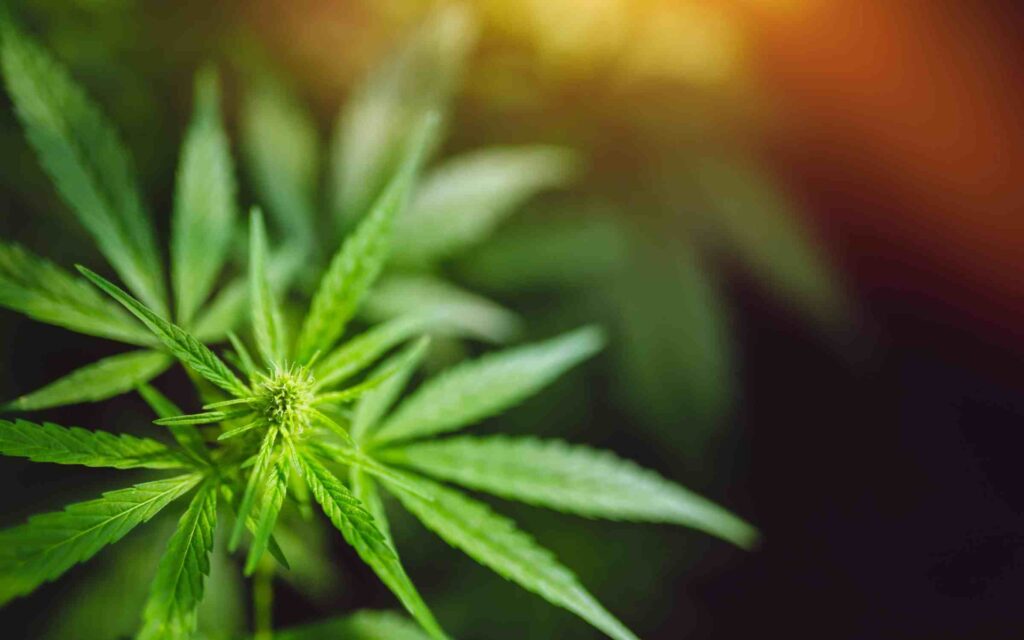A Florida legislative subcommittee on Monday advanced a bill to restrict psychoactive hemp-derived cannabinoids such as Delta 8 THC and Delta 10. The legislation, House Bill 1613, was advanced by the House Agriculture and Natural Resources Appropriations Subcommittee by a vote of 8-4.
The 2018 Farm Bill legalized hemp and hemp products at the federal level, leading to a surge in new hemp businesses nationwide. Under the legislation, cannabis with no more than 0.3% Delta 9 THC (the compound largely responsible for the “high” experienced when smoking marijuana) on a dry weight basis is considered legal hemp under federal law.
Legalization Spawns New Hemp Products
The growth of the hemp industry has led to novel new products, including those containing psychoactive cannabinoids such as Delta 8 and Delta 10 THC. Such products are widely available in easily accessible locations including convenience stores, gas stations and smoke shops throughout the country, leading lawmakers in many states to take steps to regulate hemp-derived cannabinoids.
The legislation advanced on Monday would ban Delta 8, Delta 10 and other hemp-derived cannabinoids including hexahydrocannabinol (HHC), tetrahydrocannabinol acetate (THC-O), tetrahydrocannabiphorol (THC-P), and tetrahydrocannabivarin (THCv).
“This bill is not designed to criminalize behavior,” Republican State Representative Tommy Gregory, the sponsor of the bill, said in a statement about the legislation cited by local media. “This bill is designed to be a consumer protection tool.”
The bill also redefines hemp to “outline that hemp extract may not exceed 0.3% total delta-9-THC concentration on a wet-weight basis or exceed 2 milligrams per serving and 10 milligrams per container on a wet-weight basis,” according to a report from Florida Politics. The new standard is more restrictive than the 2018 Farm Bill and would essentially ban many products available today, including full-spectrum CBD oils.
Jeff Sharkey, a hemp industry advocate, said the bill would help protect consumers from cannabinoids not naturally found in cannabis, which have not been studied for safety as much as Delta 9 THC and CBD.
“This is an attempt by the Legislature to reign in some of the synthetic products that are out there like under the guise of hemp,” said Sharkey.
Bill Has Vocal Opposition
Other proponents of the hemp industry including some lawmakers and small business owners agree that some regulation of hemp products is appropriate. However, they are concerned that HB 1613 is too restrictive and will harm or even destroy Florida’s hemp businesses, many of which are small, locally-owned enterprises.
At Monday’s subcommittee hearing for HB 1613, Democratic Representative Hillary Cassel said that if the bill is approved by the legislature and signed into law by Republican Governor Ron DeSantis, it will destroy Florida’s hemp economy.
“You will go to another state,” she said to those in the hemp industry attending the hearing. “And we will find our consumers and Floridians in a position where they will be buying [hemp products] from the black market, buying it off the internet and having no idea what’s contained within that product.”
Michael Pool, who operates Tampa-based hemp retailer Astrobleme, said that the milligram cap in the bill would not only ban the psychoactive products targeted by the legislation. The bill would also affect many non-psychoactive products that people across Florida now use.
“I have products in over 80 stores across the state,” Pool told Florida Phoenix. “Most of those stores are doing $2,000 a month, $3,000 a month, to $4,000 a month in sales of my products. And to just completely remove that would not be to my detriment, but all those others.”
However, the sponsor of the legislation does not believe that HB 1613 will harm the legal hemp industry. Representative Thad Altman, chair of the Agriculture and Natural Resources Appropriations Subcommittee and a fellow Republican, asked Gregory how he thought passage of the bill would impact the state economy.
“I don’t concede that that actually it’s going to have a negative fiscal impact on businesses or revenue derived from taxes based on those businesses,” Gregory maintained, but did foresee reduced state spending for “providing care for people that overdose when they’re self-medicating using these products that need further regulation.”
Later, Democratic Representative Dianne Hart asked Gregory directly, “Do we think that this may destroy a vital industry in our state?”
“No, I don’t have that concern at all,” Gregory replied. “I don’t think that it’s going to have that impact.”
Glen Sheppard and his wife operate Tallulah, the owner of a chain of smoke shops around Florida. He disputed Gregory’s assertion that the bill would hurt the state’s economy.
“To say that there won’t be any economic impact to the state of Florida, I can tell you that’s totally false,” Sheppard said. “It’s strange that somebody can come stand up here and claim one thing that’s totally, obviously not true at all.”
HB 1613 now heads to the House Infrastructure Strategies Committee. If the legislation is approved there, it will head to the floor for a vote by the full House of Representatives. A companion measure, SB 1698 from Republican Senator Colleen Burton, is expected to receive a vote on the floor of the Florida Senate this week.
H/T: hightimes.com



